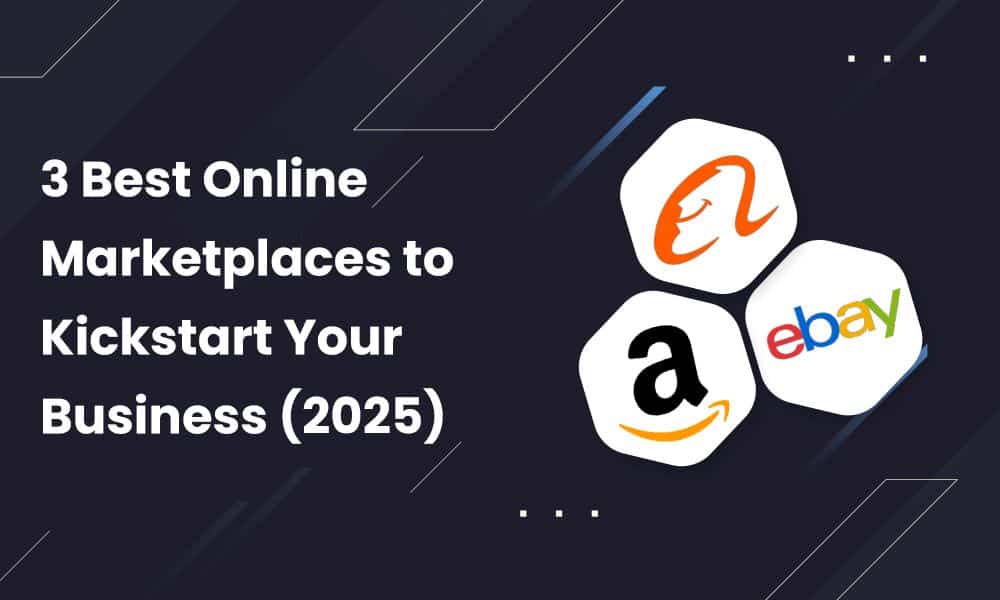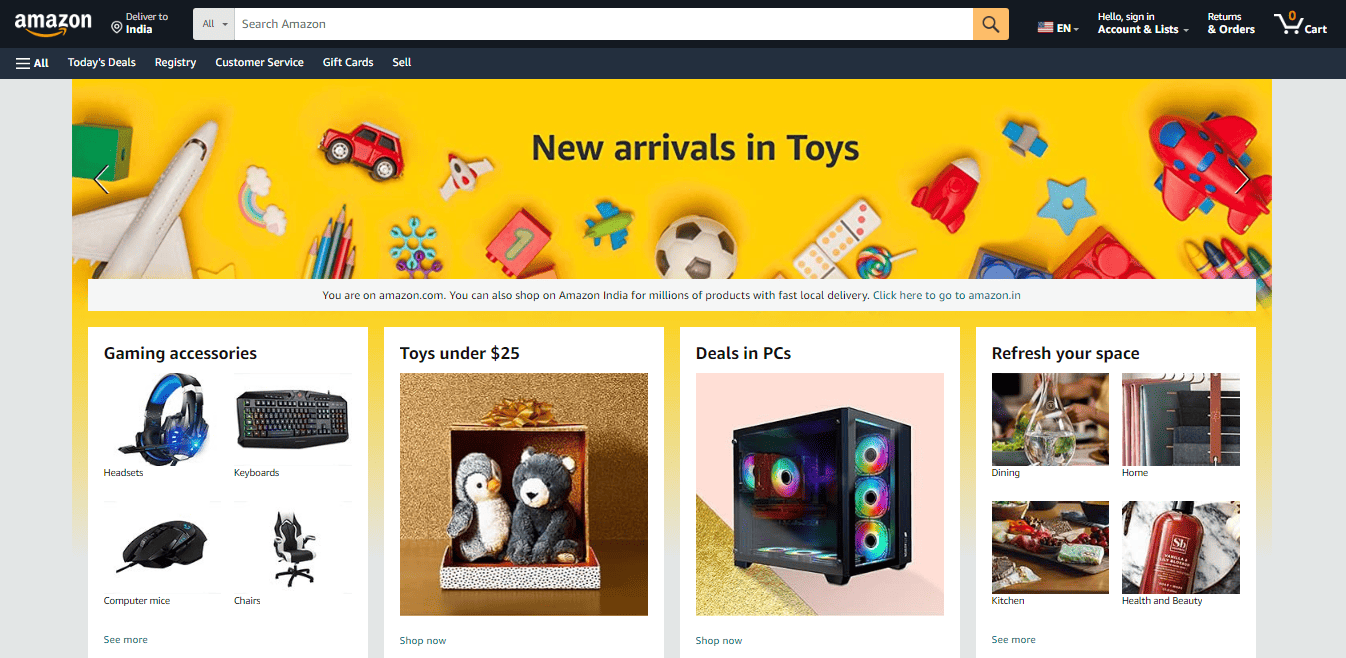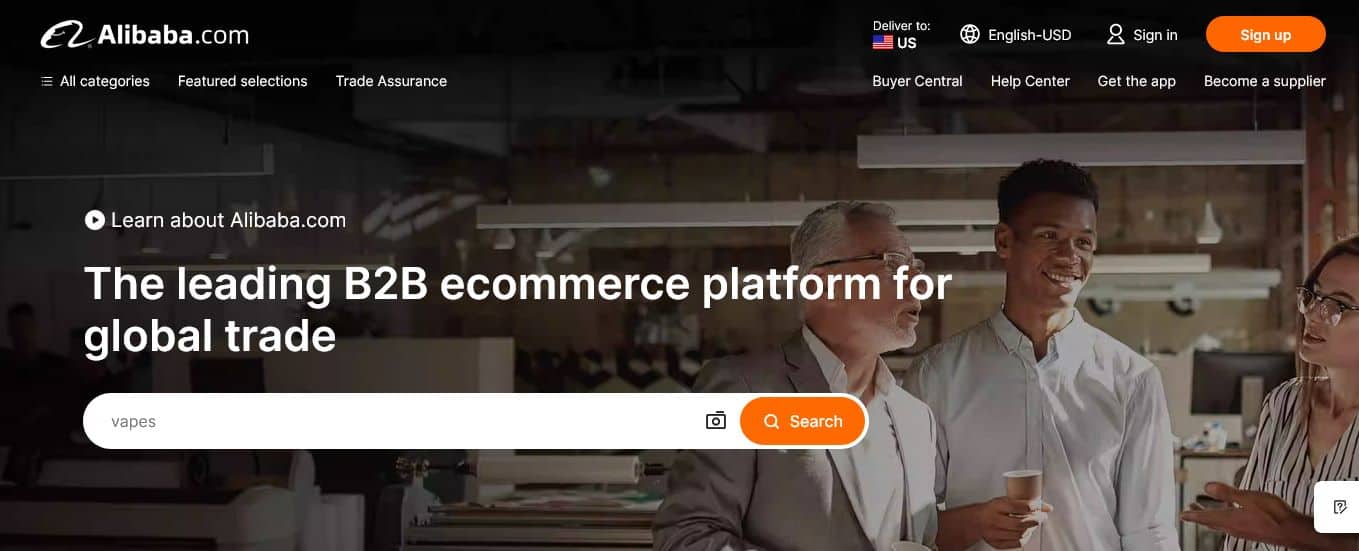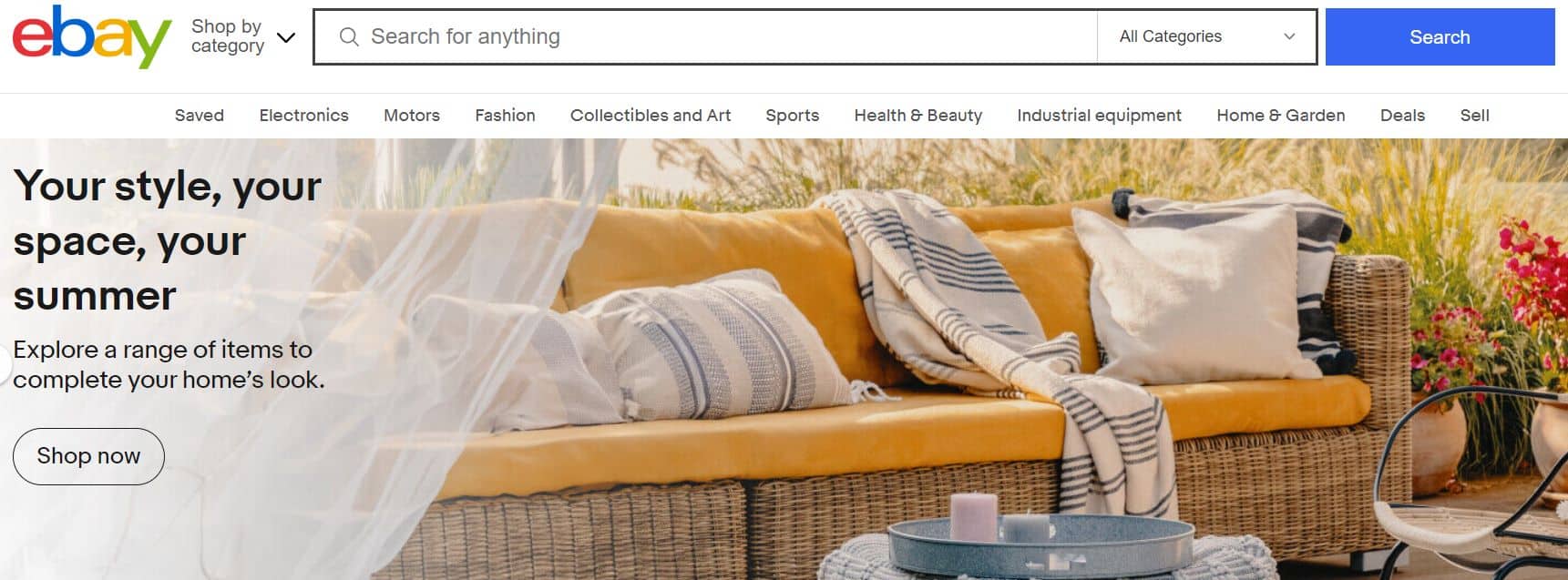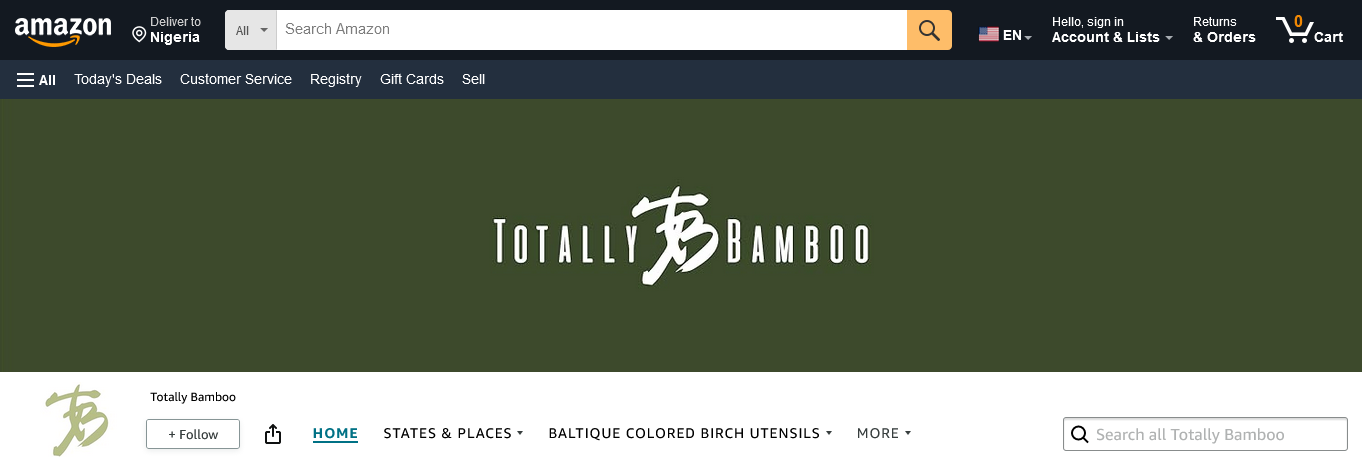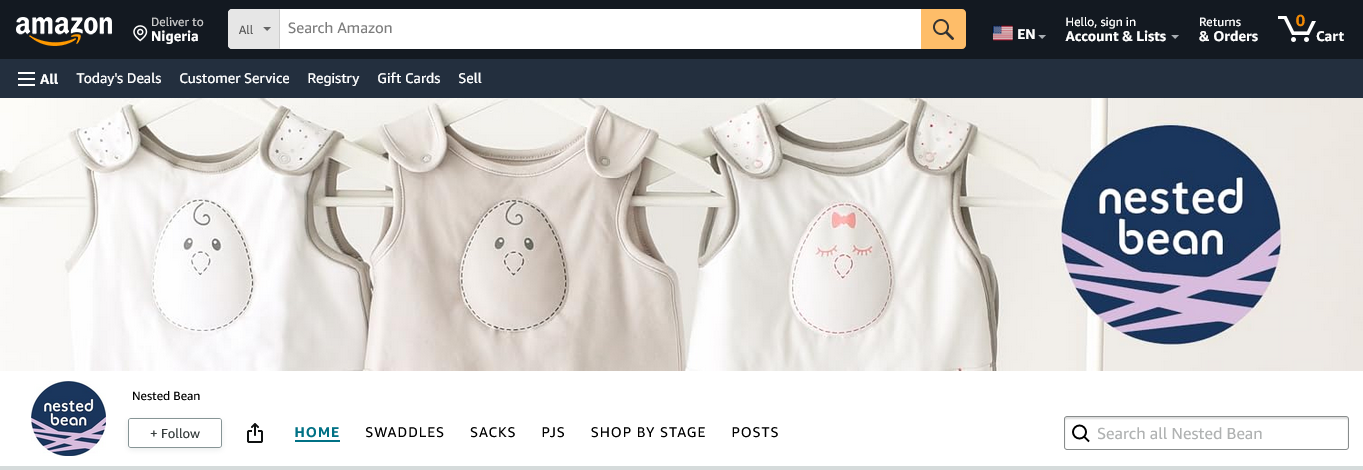Online marketplaces have changed the eCommerce business industry.
According to research, 47% of digital purchases worldwide happen via online marketplace platforms.
People are switching from traditional retail channels to online marketplaces because these platforms help sellers access an existing customer database and offer diverse products, competitive pricing, and convenient shopping experiences.
Online marketplaces have become popular, and the market size is expected to grow to $8.1 trillion from $5.2 trillion in 2026.
This exponential growth is reshaping the entire retail industry and creating new opportunities for businesses to expand their reach.
If you are an eCommerce business owner who wants to sell online, this guide is for you. In this blog post, we cover the following:
- Key features of online marketplaces
- Emerging trends in online marketplaces
- How to choose the right market
- And how to overcome challenges in an online marketplace
Let’s get started!
Table of Contents
Online Marketplaces 101
An online marketplace is a website or app that connects sellers and buyers. Most shoppers check one of three places before purchasing: online marketplaces, Google, or retail websites.
This is why launching your online stores on a popular marketplace is important.
Multiple online marketplaces exist, such as Facebook Marketplace and Amazon. Each has taken over traditional retail channels and experienced remarkable growth. Most of these top marketplaces sell general goods, while some are niche.
As an eCommerce seller, you increase your sales and reach by putting your online store on these online selling sites with millions of active customers.
Choosing the best online marketplace for your business will depend on your needs, technological requirements, available features, product categories, marketplace fees, and audience.
Here are some statistical insights highlighting the growth of online marketplaces.
Gross Merchandise Volume (GMV) growth
Gross merchandise volume is the total value of goods sold through online marketplaces. In 2022, it was valued at $3.2 trillion, a 2.5% increase from the previous year, and in 2023, it climbed to $3.485 trillion.
Currently, the gross merchandise volume of online marketplaces is at 3.832 trillion USD. The increase highlights the role of online marketplaces in global commerce.
Most buyers now opt for the convenience and variety offered by online marketplaces.
Because of the Internet’s increasing reach and consumers’ preference for online shopping, online marketplaces will continue to grow, tapping into the vast global market share.
Global reach
Every small business marketplace tries to grow its presence worldwide to reach more countries and regions.
With these goals in mind, the best online marketplaces are optimizing their systems by providing better shipping and delivery systems, multiple payment systems, and advanced technology to attract millions of monthly users.
Impact of Leading Global Marketplaces on International eCommerce
Look at popular online marketplaces worldwide and their impact on the international eCommerce industry.
Amazon
Amazon is one of the largest marketplaces in the world in terms of gross merchandise value, with US$728,776.3 million generated in 2023 and over 300 million active accounts.
Though it started as an online bookstore, this marketplace sells physical products and digital products. Amazon has an extensive reach, a customer-centric approach, a strong reputation, and a robust infrastructure for catering to millions of online shoppers.
Amazon’s marketing strategy has set the pace for other marketplace operators, creating price competition through unique innovations.
These innovations include Prime membership, same-day delivery, and one-click purchasing.
The ‘Amazon effect’ on international eCommerce results from its optimal shopping speed, subscription incentives, and connected mobile devices.
Because of Amazon, other marketplaces are beginning to maximize their shipping options, provide loyalty incentives, and deploy more technology to attract global brands and increase online sales.
Alibaba
Alibaba is a full-fledged online marketplace that operates as a B2B and B2C platform for customers and eCommerce businesses worldwide.
It has promoted global trade for businesses of all sizes, providing them access to international markets. AliExpress, Taobao, and Tmall belong to the Alibaba Group.
They focus mostly on the Chinese domestic market, while Alibaba and AliExpress target international customers.
Taobao and Tmall are the world’s leading online marketplaces based on GMV.
In 2022, Taobao and Tmall achieved GMVs of 3 billion and 2 billion, respectively. These marketplaces represent a massive portion of the global market share, with China accounting for 62% of the top 100 marketplaces’ total third-party sales.
eBay
This online marketplace has changed how buyers and sellers think about buying and selling goods. eBay’s auction and fixed-price models offer a unique shopping experience for online shoppers.
Sellers can list new and used items on eBay, making it suitable for buyers with different budgets.
As a marketplace, eBay’s global platform enables third-party sellers to reach international buyers in over 190 markets worldwide, facilitating cross-border trade and expanding market access for businesses of all sizes.
Additionally, eBay has developed small programs like the Small Business Accelerator Program to support small businesses and help them grow online with dedicated support and mentorship that outpaces traditional companies.
eBay fees are a major consideration before you use the platform because they charge a non-refundable listing fee.
Read also: B2B eCommerce Trends — These Strategies Can Boost Your Business
Advantages of Online Marketplaces for Small eCommerce Businesses
Selling online offers numerous benefits when you join an online marketplace, regardless of your challenges.
Let’s look at some of the benefits of joining an online marketplace.
Increased visibility
Online marketplaces make cross-border selling possible.
Additionally, established marketplaces rank high on search engines, making discovering your products easier. So, by listing your product on these online marketplaces, you benefit from their traffic, attract new customers, and sell internationally and locally.
Diversifying sales channels by selling on different eCommerce platforms reduces the need for extensive marketing campaigns compared to traditional retail channels.
Additionally, operating an online marketplace has a lower maintenance cost than operating a physical retail space.
Streamlined operations and management
Most online marketplaces provide a streamlined system for managing sales and inventory.
So, you can track sales data and inventory levels to see your top-selling and least-selling products. Online marketplaces also offer automated payment systems that allow retailers worldwide to receive customer payments quickly.
Read also: The Ultimate Guide to Selling Digital Goods Online
Case Studies of Successful Small Businesses in Various Marketplaces
Sellers and small business owners have stories of how online selling sites and marketplaces have helped them in multiple ways to improve their business.
Here are case studies of some small businesses around the globe and the different marketplaces where they operate.
Totally Bamboo (Amazon)
Owned by Tom and Joanne Sullivan, Totally Bamboo started as a small business selling bamboo products. By leveraging Amazon’s existing customer database, they did not have to worry about reaching out to new customers when they started selling online.
Amazon helped them grow local product sales, such as their cutting boards made with Moso, a bamboo variant. It also gave them insight into the products their customers preferred.
This data helped them expand their product categories, including pasta bowls and other kitchen utensils.
B&M Fabrications (Shopify)
B&M Fabrication, a group of mountain snowmobile enthusiasts, started selling online its business when it discovered the niche’s need for top-quality products.
The business capitalized on Shopify’s extensive features to increase sales.
By using Shopify Facebook for access to their store from Facebook, Shippo for simplifying the shipping and billing process, and Mailchimp for Shopify for delivering newsletters and notices for new product availability, B&M Fabrications has grown in operation with a simple, streamlined process.
Breezy Tee (Etsy)
Breezy Tee, owned by Brie and her husband, started their business in Lisbon, Portugal, after she noticed that she could not make her hair in any of the available salons due to insufficient hair products and materials in most salons.
Brie saw the concern as a starting point and started a small venture, but their sales went down the hill at some point.
However, Etsy Ads came through for the business after they had tried other advertising platforms. With Etsy Ads, their revenue climbed up the ladder, making them tag it as one of the best advertising platforms in terms of ROI and ease of use.
Nested Bean (Amazon)
Manasi Gangan started Nested Bean in 2011 because of a personal challenge: her baby wouldn’t sleep. This led to the creation of sleep wellness products.
These products ensure babies and their parents get the rest they need. Manasi started selling through retail stores, and the business grew until her manufacturer decided to stop working with her. She got a new manufacturer and moved on to list her products on the Amazon store in 2015.
The product listing move helped Nested Bean scale up and made it easy for her to access the end customer.
Amazon’s Product Opportunity Explorer tool also played a massive role in helping Nested Bean keep the pulse on the landscape and the competition with similar businesses.
Read also: Yo Kart And Other Cool Marketplace App Platforms
Key Features of Top Online Marketplaces
This section will analyze the six most popular marketplaces, listing their key features and unique selling propositions.
Amazon
Amazon is one of the top online marketplaces in the world, with over 300 million active accounts, though it started as an online bookstore. You can sell physical products and digital products on Amazon.
Amazon has an extensive reach, a customer-centric approach, a strong reputation, and a robust infrastructure catering to millions of online shoppers.
Its diversified business model includes online retail stores, marketplaces, web services, Prime, Amazon Ads, and physical stores. Its extensive customer base allows sellers to reach buyers in different countries. Amazon’s robust logistics and warehousing services allow online sellers and small business owners to store, pack, and ship their products, ensuring fast and reliable delivery.
Amazon also provides advertising and marketing tools to boost product visibility and sales.
Alibaba
Alibaba is a multinational eCommerce platform that connects businesses to customers and businesses to businesses for cross-border trade. Its operations focus on retail, the internet, and technology, with several platforms like Taobao, Tmall, and Alibaba.com (B2B).
With its secure payment gateway, customers and businesses do not have to worry about a hitch in their transactions. Alibaba’s Alipay ensures smooth and safe transactions, which makes it more reliable.
Alibaba’s popularity makes it a strong competitor for Amazon.
This online marketplace connects businesses and suppliers, making B2B and bulk purchase transactions for small businesses easier. Alibaba’s vast network of businesses worldwide creates competition, offering products at competitive prices.
It also provides buyer protection services for online shoppers, ensuring timely product delivery.
Wayfair
Wayfair focuses on home goods, furniture, decor, and other home-related products, unlike the first two marketplaces. One unique aspect of Wayfair is that it does not hold inventory but operates using a dropshipping model, shipping products directly from suppliers to customers.
Users will surely experience a seamless shopping experience with its unique, user-friendly interface. Wayfair incorporates innovative tools like augmented reality (AR) to help customers visualize products in their homes, enhancing the shopping experience.
It is also known for its dedicated customer service, which builds customer loyalty.
Read also: How to Choose Products to Sell Online
Newegg
Like Wayfair, which focuses on furniture, Newegg is an online marketplace that caters mainly to customers interested in electronics.
The platform is renowned for its competitive pricing on various computer parts, gaming equipment, and electronics, making it a savvy choice for tech enthusiasts.
Newegg has a strong community of tech enthusiasts who provide detailed product reviews and ratings, helping buyers make informed decisions.
With access to Newegg, third-party small businesses can list and sell products with access to robust customer support options like live chat, email, and phone. Newegg has expanded from being one of the online marketplaces in the USA to a global audience, making it possible for customers around the globe to reach them.
The platform has built-in marketing tools and fulfillment services to increase sales and customer satisfaction.
The platform offers unique services, such as Newegg Shuffle for high-demand products and Newegg Premier for premium customer benefits, which enhance the overall shopping experience.
Facebook Marketplace
It is easy to buy and sell on Facebook Marketplace. Facebook Marketplace is a free listing commerce platform that allows users to buy and sell items within their local community. The marketplace focuses on safety and ease for both buyers and sellers.
Facebook Marketplace has many product categories and allows users to discover items based on interests and location.
Similar to Newegg’s community of tech enthusiasts, Facebook Marketplace also fosters community engagement, allowing users to interact, review, and connect with local sellers. Additionally, it has unique features like local pickup options, secure in-app messaging, and Facebook Pay and WhatsApp integration.
Facebook’s large user base makes it easy for sellers to gain high visibility.
Rakuten
The “Amazon of Japan,” Rakuten is a global marketplace with a strong presence in Japan, the same way Amazon has in the US. Rakuten operates as an open marketplace model, allowing vendors to manage their inventory and customer service.
Rakuten allows users to customize their storefronts to maintain their brand identity. The platform also provides advertising solutions to increase product visibility and sales. Additionally, Rakuten provides weekly payouts, which make managing your cash flow easy.
Finally, it offers super points and cash-back incentives to encourage users to return and buy again.
If you are an online seller, check out all these marketplaces, check if they cover your product category, have reliable traffic data, have an open web, or are app-only marketplaces.
After you streamline your choice to a few, create a seller account and test-run how they operate.
Considerations for Choosing the Right Marketplace
Choosing the right marketplace for your online business is essential for establishing your online presence and excludes price comparison sites.
You certainly want to avoid selecting a marketplace and regret why you chose it in the first place. Here are some critical factors to consider before choosing a marketplace.
Audience match
Before choosing a marketplace, make sure you understand your target audience. Analyze the demography and use the information to select a marketplace that matches your audience.
For example, Etsy is ideal for handmade and vintage items, while Amazon caters to a broad audience with diverse product categories.
Fee structures
Most marketplaces charge a minimum fee to businesses that want to list their product. You must check the cost to see if it is within your budget.
Some marketplaces offer free product listings but charge a commission on every sale. Understanding the commission fee will affect your final sale price and ascertain your business’s profit margin.
Additionally, some platforms offer subscription-based models, which provide benefits like reduced shipping costs or increased visibility. So, it’s important to consider all these price factors before deciding on an online marketplace.
Logistics support
It is essential to consider the shipping solutions offered by the marketplace. Check the price and options available. For some marketplaces, you need to handle shipping logistics independently.
Marketplaces like Amazon and eBay provide shipping support that can simplify fulfillment. Fulfillment services like Amazon FBA (Fulfillment by Amazon) can be game-changers by taking over storage, packaging, and shipping, allowing you to focus on sales and marketing.
Environmental, Social, and Governance (ESG) Practices
Sellers and suppliers must adhere to ethics in every marketplace.
This helps raise the consciousness of consumers affected by the social impact of their purchases. Environmental, social, and government practices are essential because online marketplaces promote ethical business practices. The emphasis on ethics and sustainability helps online marketplaces prioritize eco-friendly and ethically sourced products.
For example, Etsy has dedicated sections highlighting products created from recycled materials or those supporting fair trade practices.
Marketplace rules
Ensure that the product you intend to sell aligns with the marketplace’s policies and guidelines.
Be aware of the rules and limitations regarding product listings. Some products can not be sold in some marketplaces, and you should evaluate the marketplace’s level of support.
Ensure your business practices and products comply with the marketplace’s terms and conditions to avoid penalties or bans.
How to Use Marketplace Analytics for Strategic Decision-making
Proper analytics of online marketplaces can provide valuable insights to help you make data-driven decisions and optimize your eCommerce strategy.
Here’s how to leverage these analytics.
Sales data analysis
Tracking your sales trends helps you identify your peak selling periods.
This lets you gain information on specific product performance within your peak selling period. You can adjust your inventory and marketing efforts accordingly with the data obtained from sales data analysis.
Finally, monitor metrics like impressions, click-through rates, conversion rates, and sales volume to understand what’s working and what’s not on each marketplace and optimize your sales strategy.
Customer insights
Understanding your customers’ behavior and demographics will give you insights into how to tailor your marketing strategies.
With insights from customer behavior and feedback, you can identify common complaints, guide product improvements, and enhance customer service.
Competitor analysis
With marketplace analytics, you can check and measure your performance compared to your competitors. You can also identify gaps and rework them to create a unique business.
Competitor analysis in the marketplace also involves comparing your competitors’ marketing and pricing strategies and benchmarking against yours.
Advertising effectiveness
In a marketplace, it is essential to check the effectiveness of your ads and ask whether they are catchy enough or should be changed.
Marketplace analytics track the performance of your advertising campaigns and determine which ads drive more traffic and conversions. You can also calculate the ROI of your advertising efforts to ensure you’re getting the best value for your marketing dollars.
Read also: What is Amazon FBA? Fees, Requirements, and Optimization
How To Overcome Challenges Encountered in an Online Marketplace
Most marketplace sellers in an online marketplace encounter challenges that can be overwhelming, but it is essential to scale through for your eCommerce store success.
Let’s look at ways to overcome the common difficulties encountered in marketplaces.
Navigating competition within crowded marketplaces
To navigate a crowded marketplace effectively, you must grasp the market dynamics well.
Also, consider using marketing automation tools to your advantage. For example, order management tools can simplify your shipping process and help your business stand out. You can also evaluate your price range, product offerings, and marketing strategies and develop unique solutions.
Managing customer service and fulfilling expectations
Expectations shape your brand’s customer service to match customers’ demands. People love to stick to a brand they are comfortable with.
However, your business might not grow if you do not manage your customers’ expectations. To help you manage your customer service and fulfill expectations, here are three things you can do:
- Start with being honest and setting clear expectations for your customers.
- Utilize customer relationship management (CRM) systems to build customer relationships
- Collect customer feedback to improve your customer service and brand perception.
When you manage customers’ expectations, you create an opportunity to reinforce trust and loyalty.
Legal considerations
SMBs sometimes encounter legal challenges because of non-compliance, and most stay in the business for a long time.
However, legal challenges can be solved by consulting legal experts for advice on navigating complex market regulations and avoiding potential pitfalls. Ensure your business practices align with legal requirements.
Legal requirements may involve verification of seller identities, maintaining accurate records, and providing clear information to customers.
Conclusion
In this article, we have discussed extensively the most popular marketplaces for eCommerce business owners, factors to consider before choosing one, and key features to check for. Decide on a marketplace that works for you. Alternatively, you can launch your online store on multiple marketplaces. This gives you more audience reach and visibility.
EngageBay is an all-in-one marketing, sales, and customer support software for small businesses, startups, and solopreneurs. You get email marketing, marketing automation, landing page and email templates, segmentation and personalization, sales pipelines, live chat, and more.
Sign up for free with EngageBay or book a demo with our experts.
Frequently Asked Questions (FAQ)
1. What defines an online marketplace?
An online marketplace is a digital middleman, platform, website, or mobile application for sellers and buyers. It facilitates the shopping connection between sellers and buyers visiting the marketplace for physical or digital goods.
2. How do you choose the right marketplace?
The first step to choosing the right marketplace for your products is to check the marketplace for their popular products.
3. What are the common pitfalls in selling on online marketplaces?
Common pitfalls while selling on the online marketplace include ignoring data security, paying less attention to customer loyalty and retention, stockouts and inventory overload, inadequate user experience and design, ineffective advertising and promotion, and failing to respond to customer feedback.
4. How can small businesses maximize their visibility in online marketplaces?
Small businesses can maximize their visibility in an online marketplace by implementing SEO and digital marketing strategies. They can also target a specific niche because appealing to a general audience can be more difficult.
5. What are the latest trends in marketplace technology?
Artificial intelligence and chatbots hold the first place on the list of the latest trends in marketplace technology.
Other trends in marketplace technology include mobile shopping for shopping with smartphones, live shopping, vertical marketplaces, omnichannel selling, and blockchain technology for transparency and security improvement.
